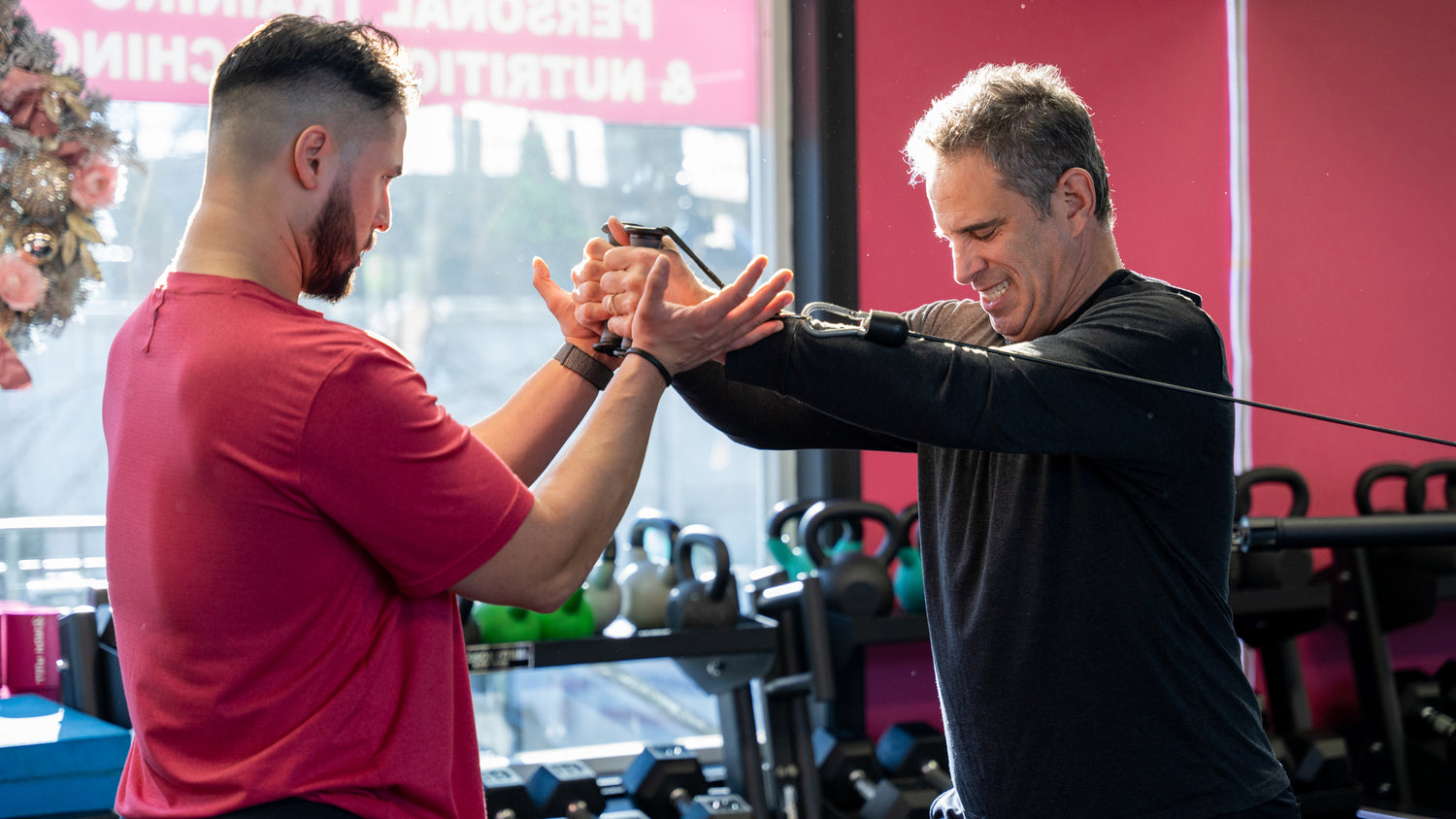
Make Your Brain Stronger | How Physical Exercise Fuels Neuroplasticity and Mental Performance
Share
We’re almost halfway through 2025, which means it's a good time to assess your health and wellness progress. No matter where you are on your fitness journey, here’s some life-changing information…
Exercise isn’t just about building muscle—it’s about building a better brain.
This is not just me being motivational. The proof is in science and data. One of the most powerful tools for mental agility, emotional resilience, and long-term cognitive health is movement.
Let’s talk about how physical exercise boosts your brain—and why it might be your secret weapon for living a healthier and happier life.
What Is Neuroplasticity (and Why It Matters)?
Neuroplasticity is your brain’s ability to grow, adapt, and reorganize itself by forming new neural connections. It’s how you learn new skills, adapt to change, bounce back from setbacks, and even form new habits.
In your younger years, neuroplasticity is firing on all cylinders, but as we age, the rate of neural regeneration naturally slows down. However, research now shows that you can keep your brain plastic and sharp—even as you get older—by stimulating something known as neurogenesis: the birth of new brain cells.
Where does this happen? Mainly in a part of your brain called the hippocampus, a region tied to memory, creativity, and emotional regulation.
Here’s the good news: one of the best ways to keep that engine running is through regular physical activity.
The Exercise–Brain Power Connection
When I originally wrote a similar article back in 2018, I talked about the work of Dr. Wendy Suzuki, a neuroscientist and fitness advocate who began exploring how exercise influenced her cognitive performance. Fast-forward to today, and the field has exploded.
According to a 2023 systematic review published in Nature Reviews Neuroscience, aerobic exercise (like running, cycling, or circuit training) enhances hippocampal volume, increases brain-derived neurotrophic factor (BDNF—a protein that supports neuron growth), and improves executive function, learning speed, and emotional control.
In other words: physical exercise helps your brain literally grow stronger.
Suzuki's original research at NYU still stands as a prime example. When she added workouts to her students’ routines, their performance on memory and pattern-recognition tests improved significantly. Their brains weren’t just learning more—they were learning faster.
Recent studies have even suggested that consistent movement helps delay or prevent neurodegenerative conditions like Alzheimer’s and Parkinson’s.
Creativity, Adaptability, and a Better Mindset
The hippocampus isn’t just about memory, it is also tied to imagination and divergent thinking (aka: problem-solving and idea generation). give you a creative edge.
When you move your body, you give your brain room to breathe and think. Ever notice how your best ideas come after a workout or a walk? That’s not a coincidence.
Your ability to adapt to change—whether it’s switching careers, ending a relationship, or simply taking on a new challenge—relies on your brain’s plasticity. And movement helps train your brain for that kind of adaptability.
My Personal Experience
Back in what I now call my “transformational summer,” I was dealing with a whirlwind of change—career shifts, family challenges, and a total re-evaluation of who I wanted to be. But the one thing that stayed consistent? My workouts. My nutrition. My health.
And now, years later, I recognize that this wasn’t just about staying in shape physically. My consistent training was giving me the cognitive strength and emotional bandwidth to handle change with clarity and courage.
I wasn’t just building my body, I was building a better brain.
What This Means For You
You don’t need to be a neuroscientist to apply this to your own life. Here’s what it boils down to:
-
Moving your body regularly can literally help your brain grow.
-
Aerobic and resistance training have both been shown to enhance cognitive function and memory.
-
Creativity, learning, and adaptability are not fixed traits—they’re trainable skills. Exercise is one of the best tools to develop them.
- If you’re feeling stuck, scattered, or overwhelmed by change—don’t overthink it. Start by moving.
Whether your wellness goals are personal, professional, or just about leveling up your mindset, physical training is the foundation.
Ready to Train Your Brain?
Here at HIGHLIFE, we help you build lasting foundations in movement, strength, nutrition, and lifestyle accountability—so your progress isn’t just short-term, it’s sustainable. Our personalized training programs are designed to optimize your mind and body (and yes, your brain!) so you get the results you’re after.
It’s time to get stronger, both inside and out. Get started by booking a FREE Personal Training Consultation here. Your body and your brain will thank you!
